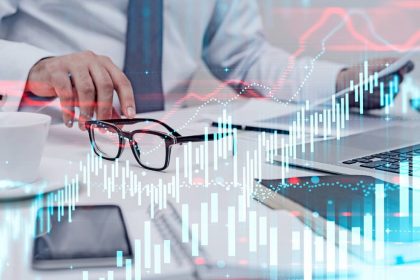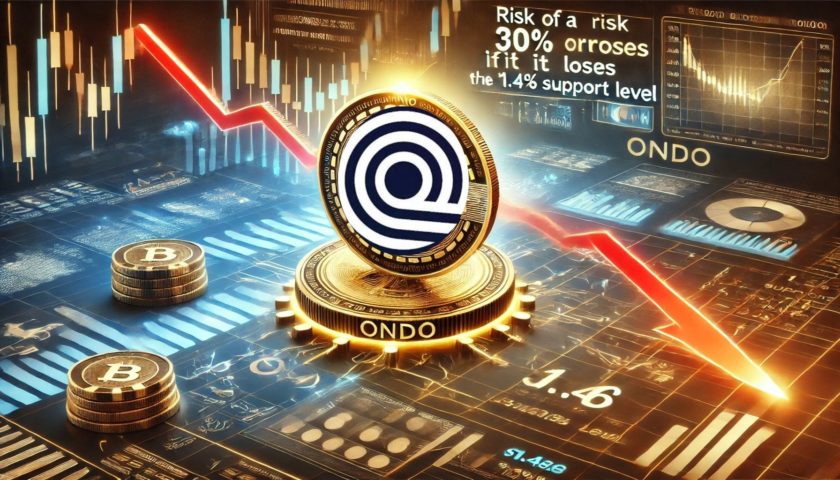Leading cryptocurrency exchanges are rushing to add support for assets based on the Algorand blockchain. The recent additions will allow users to deposit and withdraw assets such as Tether (USDT) and USDC using the Algorand protocol. Users will also be able to trade those assets for other cryptocurrencies in a seamless manner.
Assets built on the Algorand network are denoted with the suffix, ASA, to differentiate them from those on other blockchains such as ERC20 for Ethereum and TRC for Tron based tokens. ASA is an acronym for Algorand Standard Asset. This nomenclature helps traders select the protocol they would like to use for deposits and withdrawals.
OKeX and KuCoin Announce USDT/ASA and USDC/ASA Support
OKEx has become the latest crypto exchange to add support for USDT/ASA and USDC/ASA following their announcement on Feb. 11. According to the exchange, this move will enable traders to transact with these stable coins more cheaply and faster on the high performance blockchain.
#Announcement: @OKEx is adding support for #stablecoin giants $USDT & $USDC on the high-performance smart contract #blockchain @Algorand 🤝
Learn more: https://t.co/mOAdB4KlRP
Details rewards for new users coming soon. Stay tuned!
— OKEx (@OKEx) February 11, 2021
The OKEx news comes barely a day after another leading exchange, KuCoin announced their support for both USDT/ASA and USDC/ASA on Feb. 10. KuCoin stated, through their announcement post, that the move was inspired by the need to continue offering the most cost-effective transaction methods for users.
KuCoin proceeded to highlight the Algorand’s network superiority as a major selling point for their recent inclusion. The network can process over 1,000 transactions per second (T/S) in a scalable, secure, and decentralized way enabling quick settlement and transfer of assets like USDT and USDC. This pales in comparison to Ethereum’s current capacity of 15 T/S.
Additionally, Algorand is held in high regard for its simplified asset creation, instantaneous settlement and speedy transaction finality. These attributes have raised its popularity in the crypto sector with various projects leveraging this advanced technology to develop products for financial innovation.
Besides this week’s entrants, OKEx and KuCoin, there are other exchanges that added support for ASAs before. For instance, Bitfinex was among the very first crypto exchanges to list USDT/ASA, enabling its deposits and withdrawals as early as Apr. 10, 2020. The ASAs have even found their way into DeFi with exchanges like Pool-X and LBank among the platforms supporting their deposits and withdrawals.
Apart from these dollar-backed coins, there are ASAs listed across crypto exchanges globally. The team behind BrzToken, a stablecoin that is fully backed by the Brazilian Real also announced on Feb. 11 that the asset is now available on the Algorand blockchain. The asset is listed on FTX, Bittrex, BTSE and multiple Brazilian exchanges.
1) $BRZ is excited to announce that it is officially available on @Algorand blockchain, expanding the reach of the largest Brazilian stablecoin.https://t.co/bUTWdXV1n1 pic.twitter.com/lD71VsMk1b
— BRZ – Brazilian Stablecoin (@BrzToken) February 11, 2021
Adoption of Algorand Assets Will Grow
The trend is expected to continue with the roster of exchanges supporting ASAs growing by the day as they seek to offer their users better alternatives for transacting their digital assets. Considering the market conditions, the shift towards ASAs is a no-brainer for crypto exchanges. Right now the Ethereum blockchain is clogged, with surging activity in DeFi that has caused gas fees to skyrocket to unsustainable levels. Also, there is no scaling solution in sight meaning traders and crypto projects must look for alternatives.
Algorand’s features and technological superiority stands out in comparison to its competitors. It has unparalleled speeds, negligible fees of about 1/20th of a cent, and a robust infrastructure that is specifically built for DeFi.
Additionally, Algorand has entered into some high-level partnerships and is actively pursuing more collaborations to boost its capability, expand the community and add value to its ecosystem.
One such partnership is with Circle and USDC to build a foundation to support the future development of scalable, secure and compliant financial applications providing wide ranging solutions. They are also working on building a stablecoin implementation framework that will facilitate seamless transfer of funds across the banking and card network through digital dollars on their protocol.
The Algorand-Circle partnership received a huge boost after the USDC issuer signed an agreement on Dec. 3, 2020 with Visa to develop a corporate card that enables users to easily spend cryptocurrencies in the mainstream market.
Besides Circle, Algorand has an enviable list of partners globally from the technology, venture capital, cryptocurrency, and financial services sectors. Some notable mentions include Nirvana Capital, Kosmos, Yuobi Capital, Brainchild and Applied Crypto Ventures among others.
Conclusion
At the moment, the good news about Algorand continues to flow, setting up the network for big things in the future. Leading exchanges are in a race to add support for ASAs to help their users benefit from speedy and inexpensive transactions. OKEx and KuCoin become the latest entrants, following in the path of Bitfinex, Pool-X and LBank among others.
The increasing popularity of ASAs, will boost the adoption of Algorand blockchain as its superiority in comparison to its competitors continues to be publicized.
As the popular Ethereum blockchain continues to struggle with huge volumes, Algorand is in pole position to become the home of DeFi applications. It has the robust infrastructure needed to handle the heightened activity in the DeFi space.
Looking forward, Algorand’s strategic partnerships opens up multiple opportunities for the network, especially in the mainstream financial market. With countries and central banks considering the adoption of CBDCs, Algorand is well suited to host such national currencies due to its efficiency, scalability, security and fast transactions.
Kseniia is the Chief Content Officer of Coinspeaker, holding this position since 2018. Now she is very passionate about cryptocurrencies and everything connected with it, so she tries to ensure that all the content presented on Coinspeaker reaches the reader in an understandable and attractive way. Kseniia is always open to suggestions and comments, so feel free to contact her for any questions regarding her duties.




